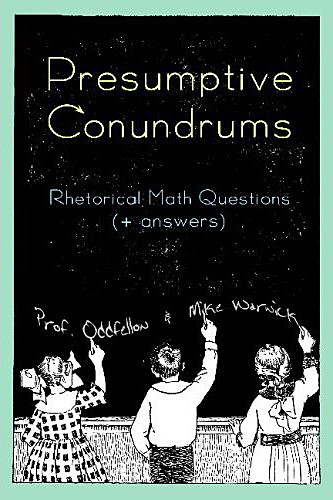 |

To facilitate our survival on the planet, human beings must make basic assumptions about physical reality. That's essential in practical terms if we're to maintain our existence, but for a species which craves a sense of stability and continuity, it's also a psychological imperative. We need to 'know' certain things are true. But can we? Since the days of ancient Greece, philosophers have pondered the question of whether or not it's possible for us to know what we think we know about anything. Debate on this point and those arising from it has never ceased. Neither has our common human desire to arm ourselves with 'facts', a desire which manifests clearly in our affinity for quantification. We seem to derive great comfort from representing things in numbers and/or expressing our understanding of the world through formulae. There is a sense of certainty, illusory or not, to be had in 'doing the math'. Enter Craig Conley. By means of presenting a series of simple and often hilarious math problems, his book ' Presumptive Conundrums' invites the reader to contemplate both epistemology and our species' profound relationship with numbers. Pythagoras said, "number is the within of all things." Mr. Conley is a master of showing us the within of things in a beautifully illustrated and profoundly engaging manner. 5-stars. —Natasha at Amazon
Presumptive Conundrums offers all sorts of literary, rhetorical math problems that seemingly have no serious answer or provability. It's the ultimate puzzler for logical- and mathematical-minded folks.
|



